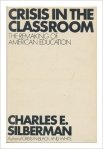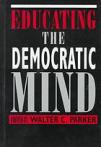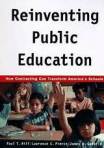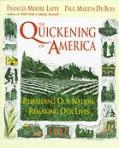Books on Democracy and Education
Posted on April 12, 2014 by debmeier
Dear friends and readers,
I’m in the process of putting together a collection of my writings on democracy with my friend, editor and co-thinker, Andy Hrycyna. I’m also in the process of straightening up my house—e.g. getting rid of books I’ll never reread (or read), etc. In the process I’ve rediscovered so many books that are about the topic of democracy that I either never read when I got them or have forgotten. I started pulling them out and scanning them—in astonishment. They either said much of what I was trying to say or had ideas I had not yet even considered but that seemed very relevant.
In short, if we all stopped writing new books for about five years and devoted ourselves to doing the same—reading the books we already have—we’d be amazed at how many wonderful ideas are floating out there in the form of books that haven’t been sufficiently appreciated. (I note that when I’m deciding whether to read a book I eagerly look first to see whether my name appears, or a book I’ve written—then I look for Ted Sizer’s name, then Symour Sarason, Eleanor Duckworth, Maxine Green, Herb Kohl, John Holt, Jonathon Kozol, etc etc). But in fact…there are a whole cast of old “new” (or new old) characters I’m determined to add to my list.
For example. Just yesterday I pulled off my selves the following nine “new” books—all 20-49 years old. A generation ago. They are in no order—just the order of the pile next to my desk at the moment.
 Crisis in the Classroom: The Remaking of American Education, by Charles Silberman. 1971. It was a ground breaker. My falling apart copy has notes and underlinings on every page. (It was published by Vintage and I have no idea if it’s still available—except in libraries.)
Crisis in the Classroom: The Remaking of American Education, by Charles Silberman. 1971. It was a ground breaker. My falling apart copy has notes and underlinings on every page. (It was published by Vintage and I have no idea if it’s still available—except in libraries.) Educating the Democratic Mind, a collection edited by Walter C. Parker. (1996). The introduction itself tries to imagine what a society in which there was no effective “government”—that was based on the immediate, material interest of the nuclear family—what Edward Banfield (in 1958) called “a society of amoral familists.” It’s an interesting place to start. Each of the 18 essays would make good reading for today.
Educating the Democratic Mind, a collection edited by Walter C. Parker. (1996). The introduction itself tries to imagine what a society in which there was no effective “government”—that was based on the immediate, material interest of the nuclear family—what Edward Banfield (in 1958) called “a society of amoral familists.” It’s an interesting place to start. Each of the 18 essays would make good reading for today. Reinventing Public Education by Paul T. Hill. Aha, here’s a provocative precursor to what we now know as the Charter movement, proposed by an ally of democratic decision making. 1995. I think Hill’s ideas are thoughtful and resonate with my own, except… He seems obvious to the risks involved—where it might take us. Of course, that could be said for many of my own favorite ideas—like small self-governing schools of choice.
Reinventing Public Education by Paul T. Hill. Aha, here’s a provocative precursor to what we now know as the Charter movement, proposed by an ally of democratic decision making. 1995. I think Hill’s ideas are thoughtful and resonate with my own, except… He seems obvious to the risks involved—where it might take us. Of course, that could be said for many of my own favorite ideas—like small self-governing schools of choice.Education and Community, by Donald Oliver. 1976. His development of the complexity of the idea of “community” has stymied me at times. It’s not as simple as I pretend when I remind us the importance of community. Oliver examines it in the real world—studying seven different interesting examples.
 Living Voices, Proceedings of Common Ground: A Conference on Progressive Education 1992. “A new wave of progressive education is now gathering momentum,” Carol Montag suggests in the Foreword to this collection of essays that were the focus on the Conference itself. I love that phrase, “A common ground.” I also loved its opening two “principles”: ”I’d like the uneasiness to exist; we should recognize it, not cover it up.” And “People who are not alike have the most to say to each other—we don’t want to go away thinking that we all agree.” That’s Maxine Greene who opened the conference and whose speech starts the book.
Living Voices, Proceedings of Common Ground: A Conference on Progressive Education 1992. “A new wave of progressive education is now gathering momentum,” Carol Montag suggests in the Foreword to this collection of essays that were the focus on the Conference itself. I love that phrase, “A common ground.” I also loved its opening two “principles”: ”I’d like the uneasiness to exist; we should recognize it, not cover it up.” And “People who are not alike have the most to say to each other—we don’t want to go away thinking that we all agree.” That’s Maxine Greene who opened the conference and whose speech starts the book.Open Education, A Sourcebook edited by Edward Nyquist and Gene Hawes. 1972 There’s not a single chapter that isn’t relevant to us today. In one book we can read Jean Piaget, John Dewey, Charles Silberman, Jay Featherstone, Lillian Weber Vito Perrone George Hein, Ann Bussis, Edward Chittenden, David Armington and on. A must re-read—42 year later. (Is it still accessible? Try.)
The Informed Vision, essays by David Hawkins. 1976 (reissued in 2002), Open it up anywhere and you won’t put it down. “I, Thou. And It” is a classic, and on and on. He offers a picture of what the STEM addicts have missed about the nature of science and mathematics and engineering!
 The Quickening of America, by Frances Moore Lappe and Paul Martin DuBois. 1992. They start with a chapter on “The Myths That Limit Us,” move onto “America Coming Alive” (yes in 1992 they were as excited as I was by what was happening, and Part Three, “Living Democracy: The Practical Tools.” As important as it was 22 years ago—when progressive educators are “quickening” again—I hope.
The Quickening of America, by Frances Moore Lappe and Paul Martin DuBois. 1992. They start with a chapter on “The Myths That Limit Us,” move onto “America Coming Alive” (yes in 1992 they were as excited as I was by what was happening, and Part Three, “Living Democracy: The Practical Tools.” As important as it was 22 years ago—when progressive educators are “quickening” again—I hope.Small Schools: The Numbers Tell a Story by Michael Klonsky. 1995. A short pamphlet summarizing the existing research and a great bibliography. Mike and I are still small school fans even as we also see how a good idea can become a tool for bad ends!
The Four Roles of Mathematics, A Liberal Arts Approach by George Henderson and Charles Johnson. 1972. This book, like those by David Hawkins, reawakened my fascination with mathematics—and also helped me understand my earlier aversion/ This is not a “how-to” book, but it provokes rethinking what mathematics actually is.
Of course, there are many other too often forgotten old greats—going back centuries–that I’m leaving out. The ones above seem to me just typical good books that we’ve probably mostly never read or forgotten. (The Power of Their Ideas was published, in fact, in 1995. And, if you haven’t read it, quick—buy or borrow it.) The “etc”s are just
